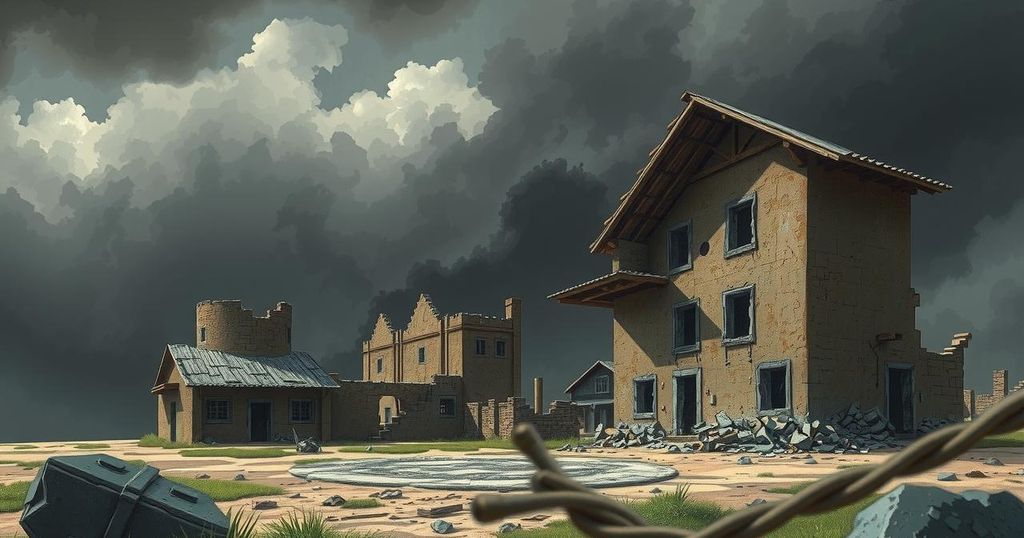World news
AHMED AL - SHARAA, ASIA, AUSTRIA, BASHA, CEASEFIRE, CONFLICT, DAMASCUS, DE VOLKSKRANT, DER STANDARD, EUROPE, EUROPE/ASIA, IRAN, ISRAEL, KYIVPOST, NETHERLANDS, NEUE ZURCHER ZEITUNG, SHA, SHARAA, SWITZERLAND, SYRIA, SYRIAN CIVIL WAR, SYRIAN OBSERVATORY FOR HUMAN RIGHTS, TERRORISM, TURKEY, WAR, ZÜRCHER ZEITUNG
Michael Grant
0 Comments
Syria’s Violence Escalates: New Government Faces Challenges and Risks
Syria is witnessing a deadly surge in violence, leading to over 1,300 deaths since the new government took office. Detractors express doubts about interim President Ahmed al-Sharaa’s sincerity regarding his pledges. Concerns about potential civil war and calls for international intervention grow amid escalating ethnic violence and external influences.
Syria is currently facing its most severe outbreaks of violence since the new government assumed power three months ago, with over 1,300 reported deaths, predominantly in the coastal region. The Syrian Observatory for Human Rights indicates that at least 830 of those killed belong to the Alawite minority, closely associated with the ousted regime of Bashar al-Assad. Concerns are raised regarding possible government-sanctioned massacres, prompting apprehension across European media outlets.
Doubts are arising concerning the interim President Ahmed al-Sharaa’s ability to deliver on his commitments. The Neue Zürcher Zeitung from Switzerland states, “Now, the former militia leader should lose no more time and start making good on his announcements.” Such skepticism regarding his promises of inclusion and equality may affect Western nations’ willingness to lift sanctions, exacerbating existing tensions within Syria.
De Volkskrant from the Netherlands alerts that Syria risks entering a new cycle of fierce internal conflict. They remark, “He will lose this support immediately if he does not succeed in stopping the ethnic violence against innocent citizens in his country.” With multiple external actors having vested interests in the turmoil, the likelihood of a renewed civil war remains high unless swift action is taken.
Der Standard from Austria characterizes the rise in violence as a foreseen calamity following the abrupt collapse of Bashar al-Assad’s regime. The shift in power dynamics has pushed Alawite groups back to their coastal strongholds, leading to a violent resistance against the perceived injustices of the new regime. This development, alongside the involvement of powerful external players, indicates a desire for the emerging state to fail.
The Spectator from the UK stresses the urgency of establishing law and order to halt the cycle of violence, stating, “Without law and order, civil wars don’t just end.” The article emphasizes that civil peace is dependent on a monopoly of violence and warns that if the ongoing violence persists, the efforts towards peace and reconstruction in Syria face significant setbacks.
Nikolay Mitrokhin from Russia warns of potential genocide, citing distressing online videos depicting the gathering of mass graves. He believes that immediate international intervention is essential to prevent further escalation of the violence, emphasizing its critical nature in the current context of Syria’s turmoil.
In summary, Syria is currently engulfed in a brutal resurgence of violence following the government transition. The inability of interim President Ahmed al-Sharaa to uphold his commitments raises significant doubts among international observers. The potential for renewed civil war looms as various factions vie for power, highlighting the need for urgent intervention to stabilize the nation and protect innocent civilians.
Original Source: www.kyivpost.com




Post Comment